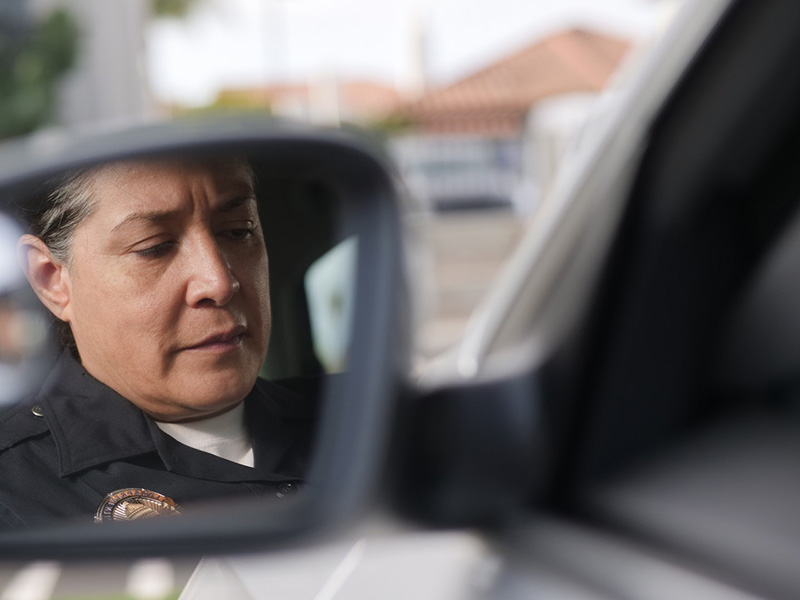If you’ve been charged with a DWI, you know it’s serious, but you may not know much else about it. To provide you with clarity and help you understand what to expect, our DWI attorneys breaking down what happens when you get a DWI, including how the penalties are determined, long-term consequences, and what you can expect if this isn’t your first offense.
What Is a DWI in North Carolina?
In North Carolina, a DWI refers to “driving while intoxicated.” This means you were suspected and charged with driving while impaired due to alcohol, having any amount of a schedule 1 controlled substance in your system, such as marijuana, or even a prescribed medication. The cut off to determine “drunk driving” is having a tested blood alcohol content (BAC) of .08 or, for commercial drivers, .04.
What Affects the Outcome of a DWI in NC?
There are six levels of a DWI in North Carolina, with Level 5 being the least serious to 1A being the most serious with more severe consequences. To determine the level of a DWI, the court will look at aggravating factors and mitigating factors.
Grossly Aggravating Factors
Grossly aggravating factors compound the DWI and make the punishment more severe. These include driving while intoxicated and:
- Having a minor child or disabled person in the vehicle. This counts as two grossly aggravating factors, regardless of how many people are in the car.
- Having a license that has been revoked due to a previous DWI.
- Having a prior conviction of a DWI in the past seven years.
- Causing or being involved in an accident in which another person was seriously injured.
The number of grossly aggravating factors affects the level of DWI the individual is charged with:
- Level 2 DWI: One grossly aggravating factor
- Level 1 DWI: Two grossly aggravating factors
- Level 1A DWI: Three or more grossly aggravating factors
It’s important to note that only DWIs with grossly aggravating factors are assigned a level 2, 1, or 1A and mitigating factors do not reduce the level of the DWI when these factors are present in the case.
Aggravating Factors
Aggravating factors will negatively affect the level of your DWI, but not nearly as severely as a grossly aggravating factor. These include:
- Driving with a BAC of 0.15
- Causing an accident where no one was seriously harmed.
- Having two or more non-DWI traffic violations on your driving record.
- Driving on a suspended license (suspension not for DWI).
- Having a DWI conviction that’s more than 7 years old.
Mitigating Factors
Mitigating factors are positive or “neutral” factors that improve the outcome of your DWI. These include:
- Impairment is caused by a legally prescribed drug that is used as directed.
- Having a BAC of .08 or .09.
- Otherwise safe driving (not speeding or driving recklessly in conjunction with impairment).
- Having a safe or clean driving record.
Having more aggravating factors than mitigating factors equals a Level 3 DWI. Equal amounts of aggravating and mitigating factors is a Level 4 DWI, and if you have more mitigating factors than aggravating, you will be charged with a Level 5 DWI.
Determining the Penalty of a DWI
If you are convicted of a DWI and all factors are weighed and considered, the penalties for each level are as follows:
- Level 5: 24 hours to 60 days in jail, up to a $200 fine, possible community service
- Level 4: 48 hours to 120 days in jail, up to a $500 fine, possible community service
- Level 3: 72 hours to 6 months in jail, up to $1,000 fine, possible community service
- Level 2: 7 days to 1 year in jail, fines up to $2,000
- Level 1: 30 days to 2 years in jail, fines up to $4,000
- Level 1A: 1 to 3 years in jail, fines up to $10,000
Additional penalties may include probation, court-ordered substance abuse treatment, and alcohol education programs. Regardless of the level of DWI, all convictions include a a minimum automatic 12 month suspension of your driving privileges. However, if you are convicted of a Level 3, 4, or 5 DWI, you may be eligible for limited driving privileges.
Multiple DWI Convictions
If this is not your first DWI, the penalties are much more severe. If you’ve had a DWI in the past seven years, you are automatically facing at least a Level 2 DWI, and often the more severe penalties associated. In addition to time in jail and fines, the revocation of your driver’s license may be up to three years or even permanent.
Schedule a Free Consultation with a DWI Lawyer in Raleigh
If you were charged with driving while intoxicated, you need a Raleigh DWI attorney, who serves all of Wake County, on your side who can help you navigate the legal system and advocate on your behalf. Even if you’ve been convicted and are still facing the challenges of a suspended license, we can help you get limited driving privileges restored so you can work, go to school, and regain your independence. Schedule a free consultation today at (919) 239-8448 or fill out the form below to learn how we can help you move on from a DWI.



